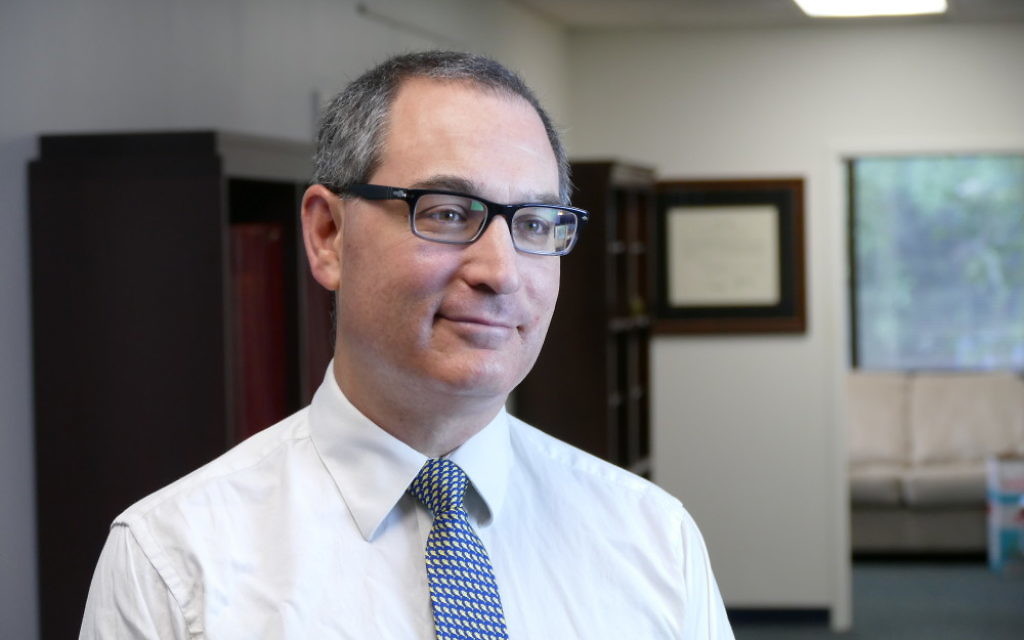Editor’s Notebook: Tolerating Who We Are
The Catholic-Jewish event organized by the Roman Catholic Archdiocese of Atlanta and American Jewish Committee’s Atlanta Chapter offered some vital optimism to nearly 200 people at The Temple on Thursday night, Sept. 8.
Look no further than the latest tweets, Facebook posts or TV newscasts about the presidential election or the rest of the AJT opinion section to see the appropriateness of the event’s theme, “Repairing the World: Our Responsibility for Tolerance.”
Tolerance, responsibility and serious efforts at world repair are sadly lacking.
Get The AJT Newsletter by email and never miss our top stories Free Sign Up
The AJC-archdiocese event itself was an important exception. It would have been easy after last year’s 50th anniversary of Nostra Aetate, the Vatican’s groundbreaking outreach to Jews and acknowledgment that we didn’t kill Jesus, to wait for the next big anniversary to get together in serious dialogue.
Instead, as Archbishop Wilton Gregory noted, Catholics and Jews gathered again on the first anniversary of the 50th anniversary, an acknowledgment that any time is the right time to talk.
The night’s speakers largely followed the optimistic tone. The archbishop, for example, spoke of a drive for unity and oneness and “the ability to appreciate one another more reverently.”
Temple Rabbi Peter Berg offered the hope that such encounters with the other would make a positive contribution to the world.
Two Emory professors, Catholic Marie Friedmann Marquardt of the Candler School of Theology and Jewish Paul Root Wolpe of the Center for Ethics, brought in the reality of some of the world’s persistent problems.
Marquardt warned that our “pervasive culture of comfort” leads us into a pattern of passive tolerance, in which we ignore suffering because it might disturb us.
“We want to engage in an active tolerance,” she said. Otherwise, “we’re really being passively tolerant of intolerance.”
She praised the “beautiful concept” of tikkun olam and pointed to our shared tradition of hospitality in its original, radical sense — caring for the stranger — as one pathway to repair the world.
Wolpe noted that the Torah tells us 36 times not to hate the stranger because we were strangers in a strange land. No other commandment is cited more than six times.
He lamented that amid the electronic noise of the modern world with its instant, ugly arguments on social media, people have lost the talent for respectful disagreements exemplified in the Talmud.
He said fear is usually the problem, but the Dalai Lama put his finger on the solution: a recognition that compassion underlies every religion and thus offers the path to universal ethics.
The interfaith discussions we had at each of our tables exemplified thoughtful, respectful dialogue. It was a positive experience for just about everyone.
But I didn’t leave with renewed optimism for our ability to tolerate our way to a better world.
The conversation at my table emphasized the necessity to move beyond seeing other people as members of groups and instead to view them as individuals. If we can stop thinking of the couple next door as gay and the family across the street as Hispanic, we can get past a lot of the stereotyping, and if they make too much noise or don’t cut their lawn often enough, we won’t connect those flaws to their groups.
We could all join hands and sing happy songs — except that we crave our own group identities. Our greatest fear in the American Jewish community isn’t anti-Semitism; it’s assimilation. And assimilation is little more than shedding group identities (religious, ethnic, sexual) to fit seamlessly into the greater whole.
I don’t think the Borg from “Star Trek” had (will have?) any trouble with intolerance or with fear.
Wolpe’s right that fear drives most of the ugly behavior we see in the world. The problem is that when it comes to embracing the other, our fear is fundamental to who we are.





comments